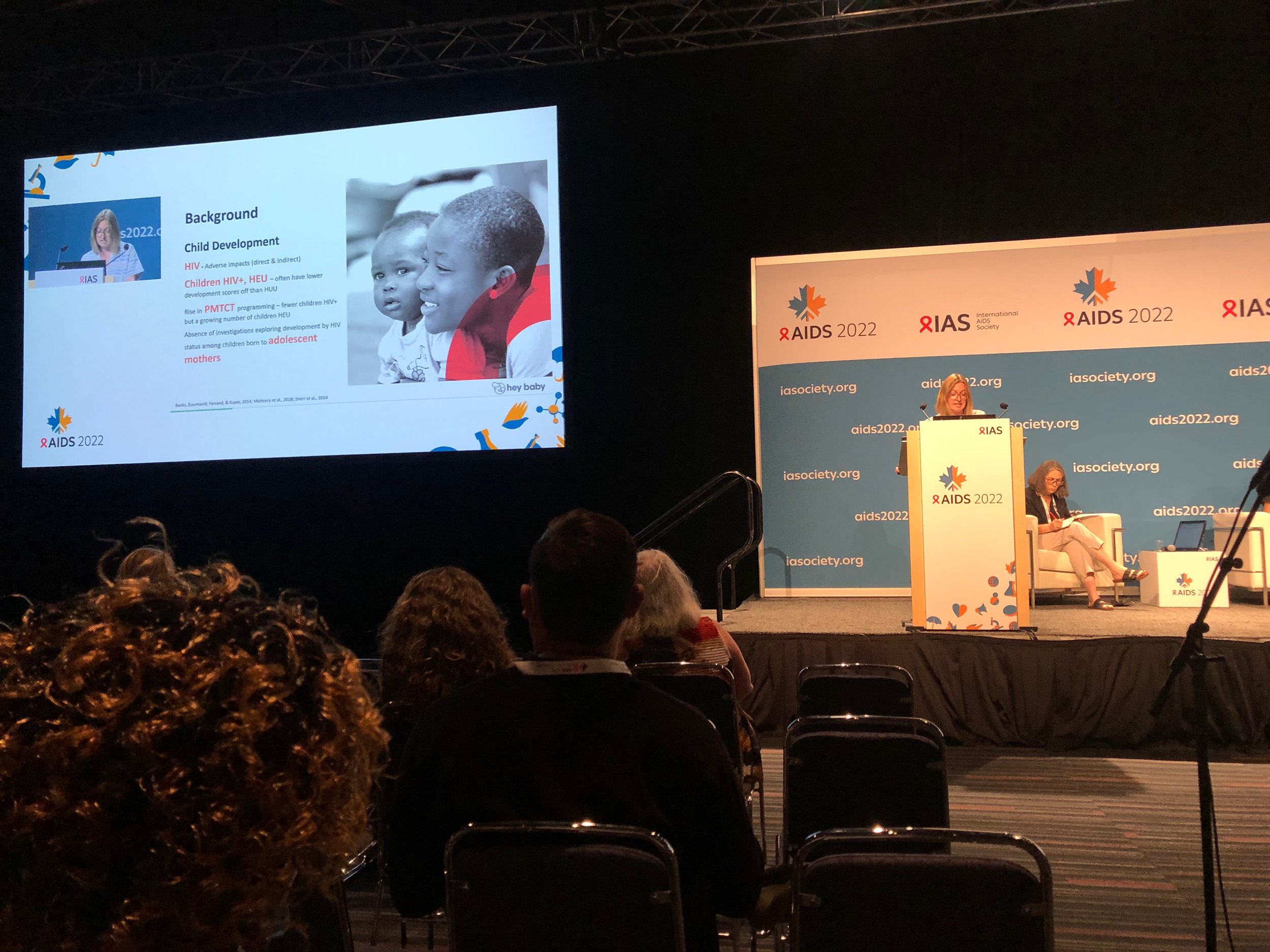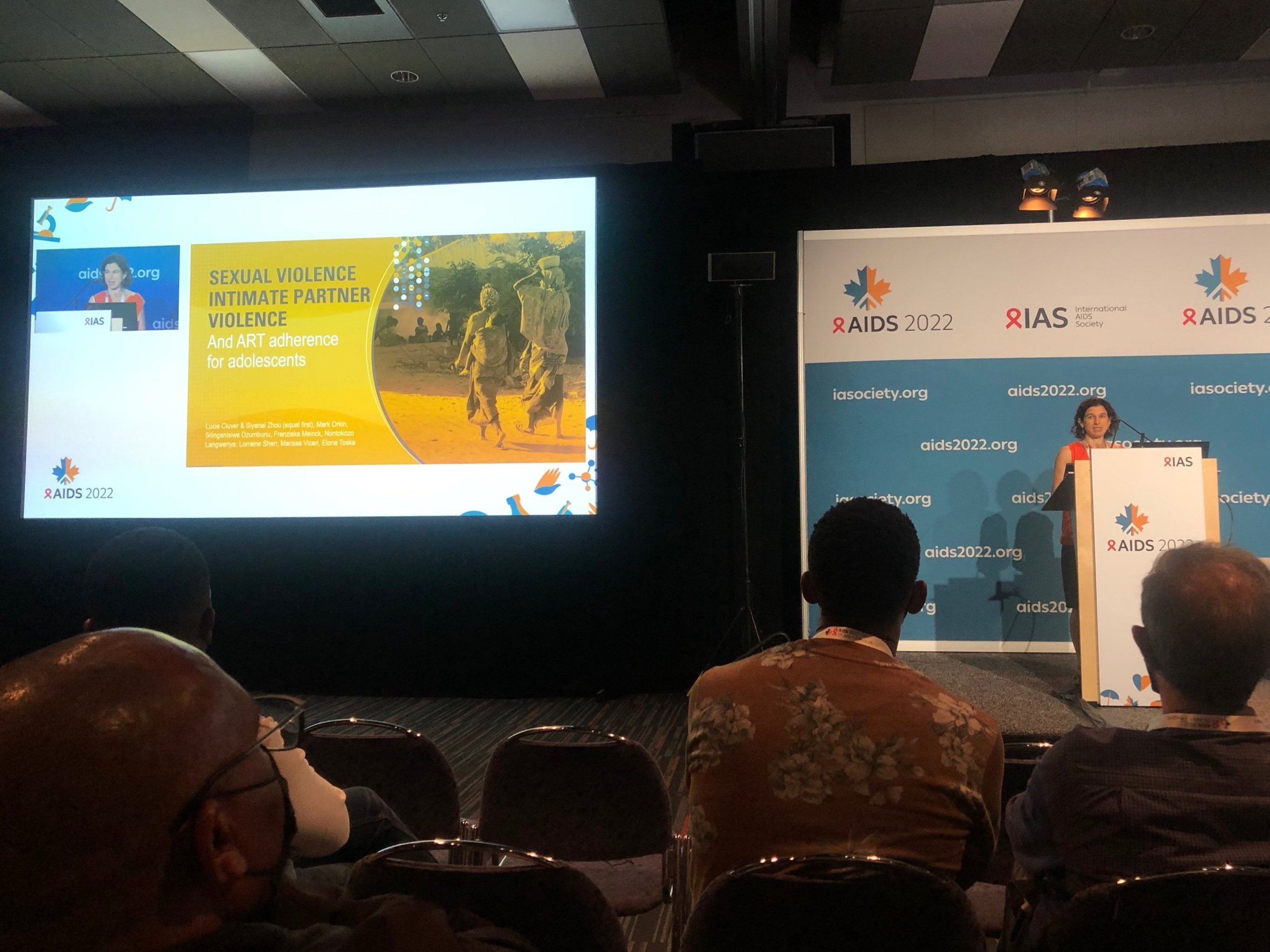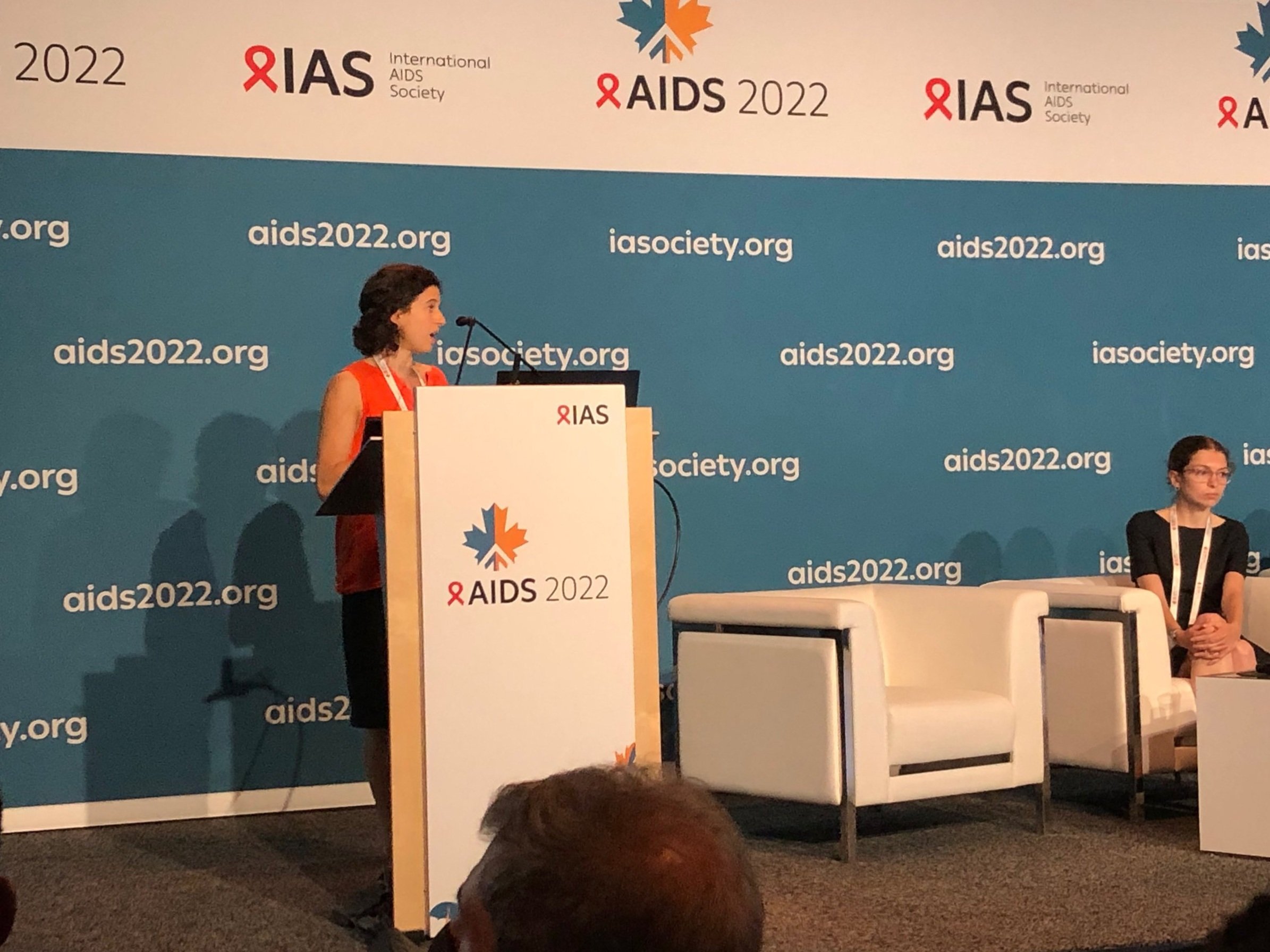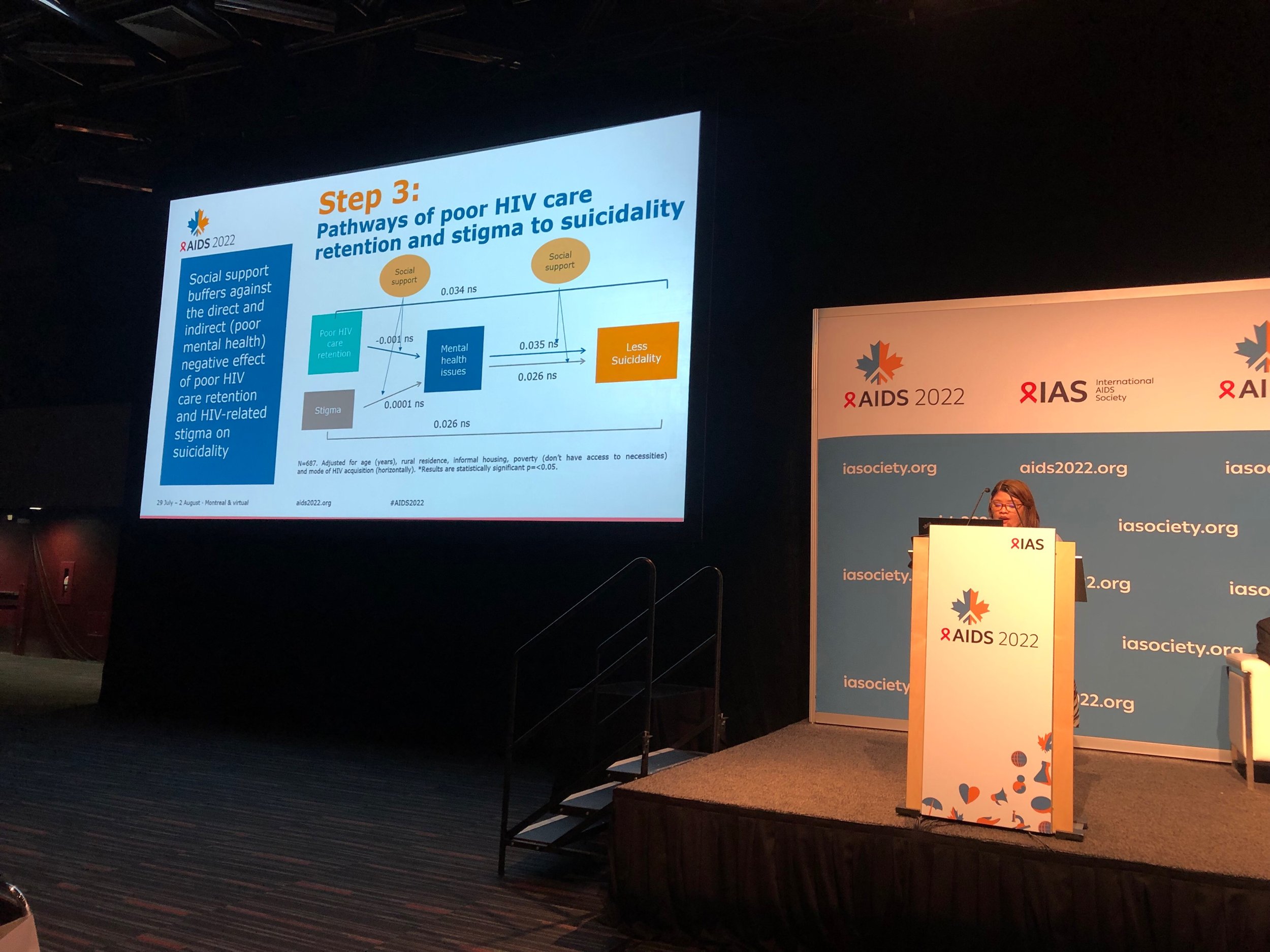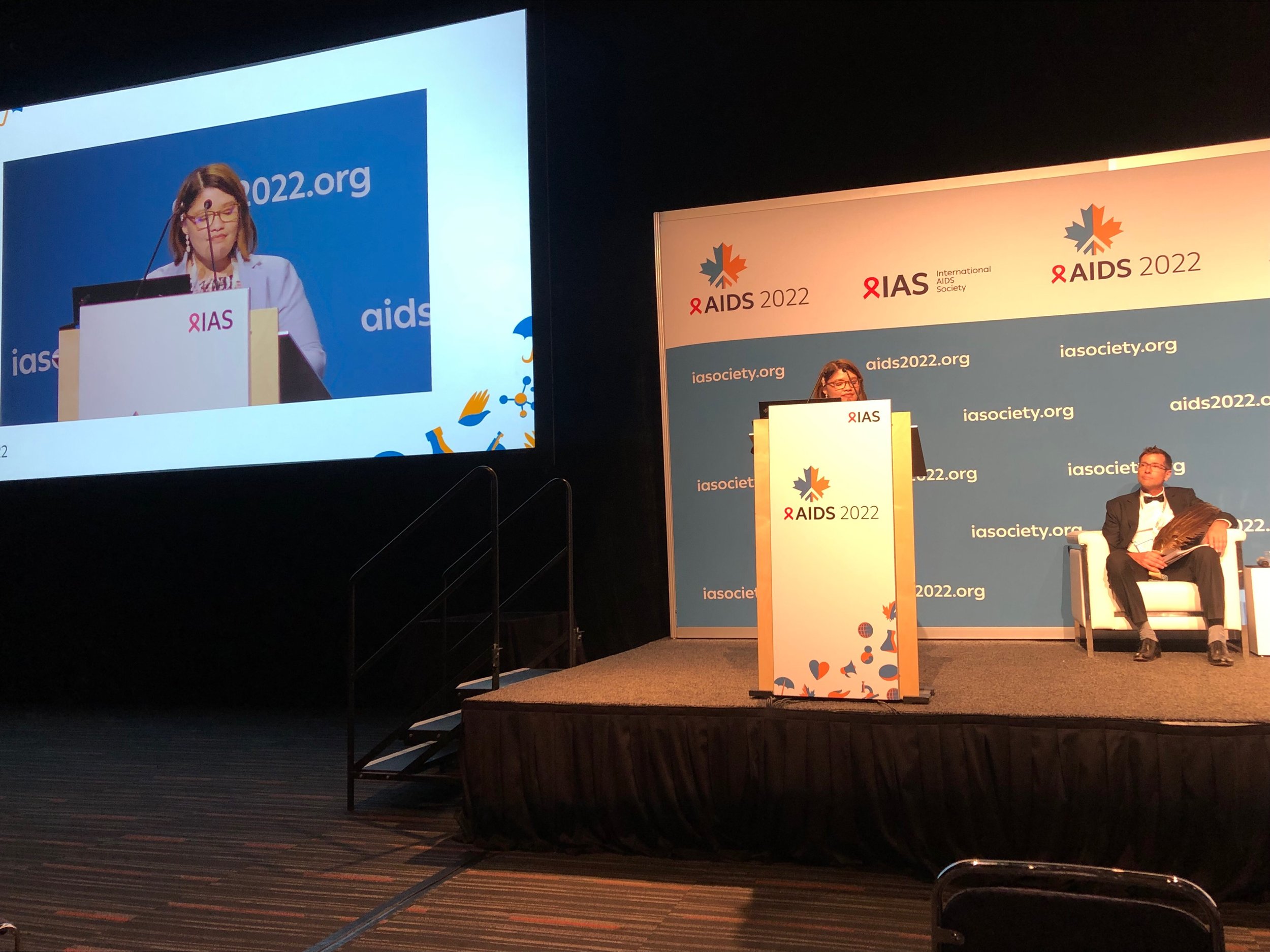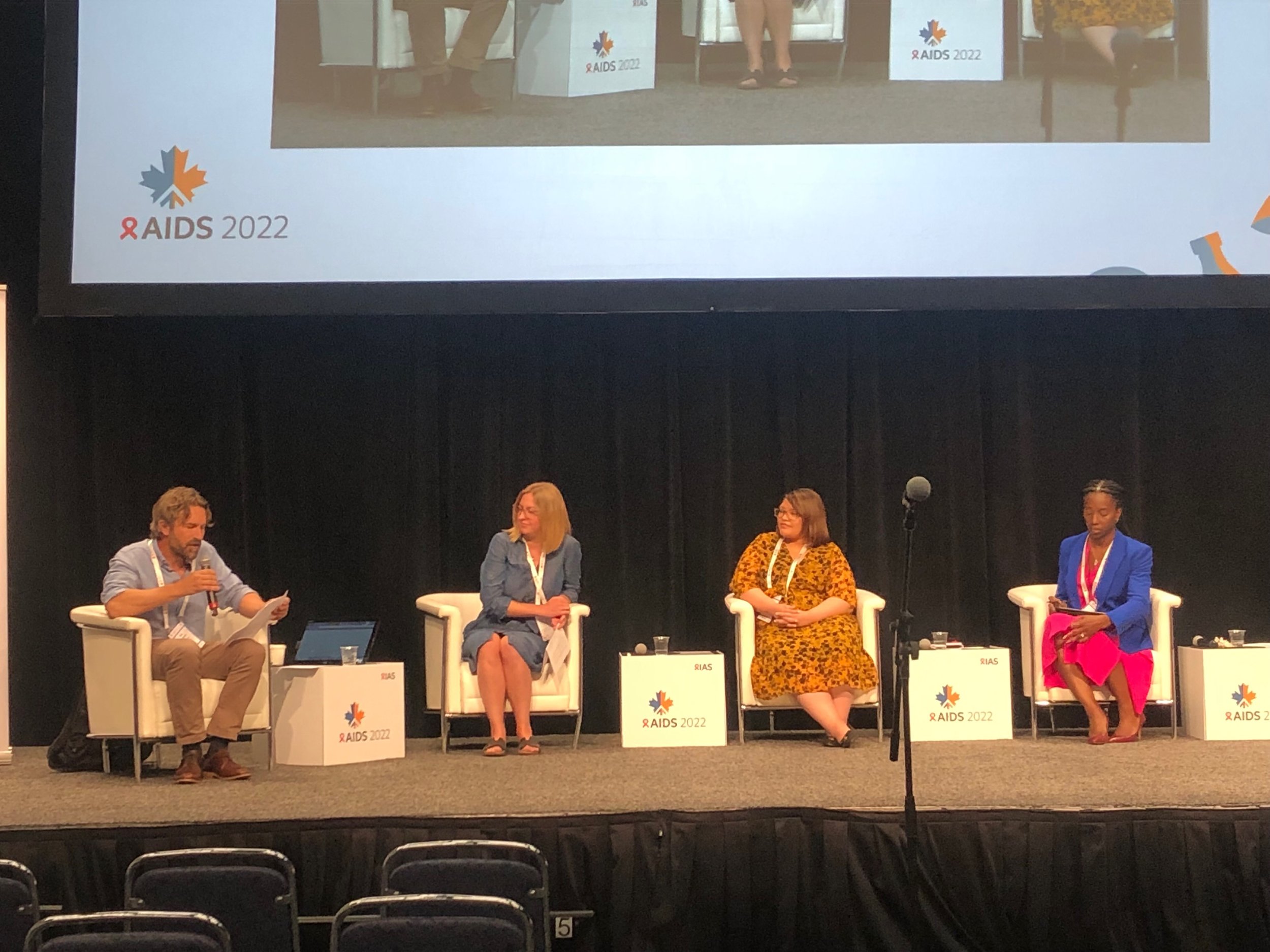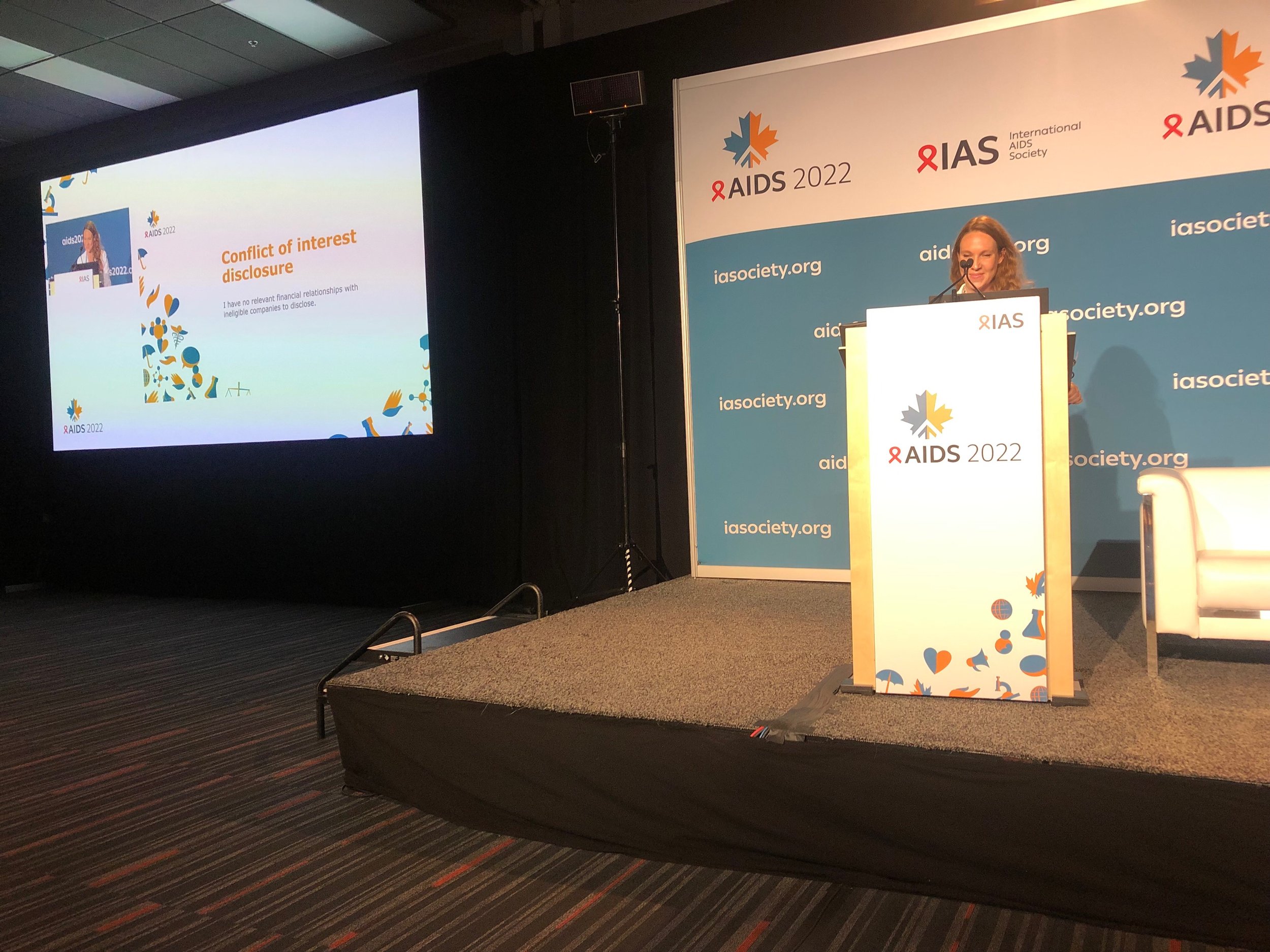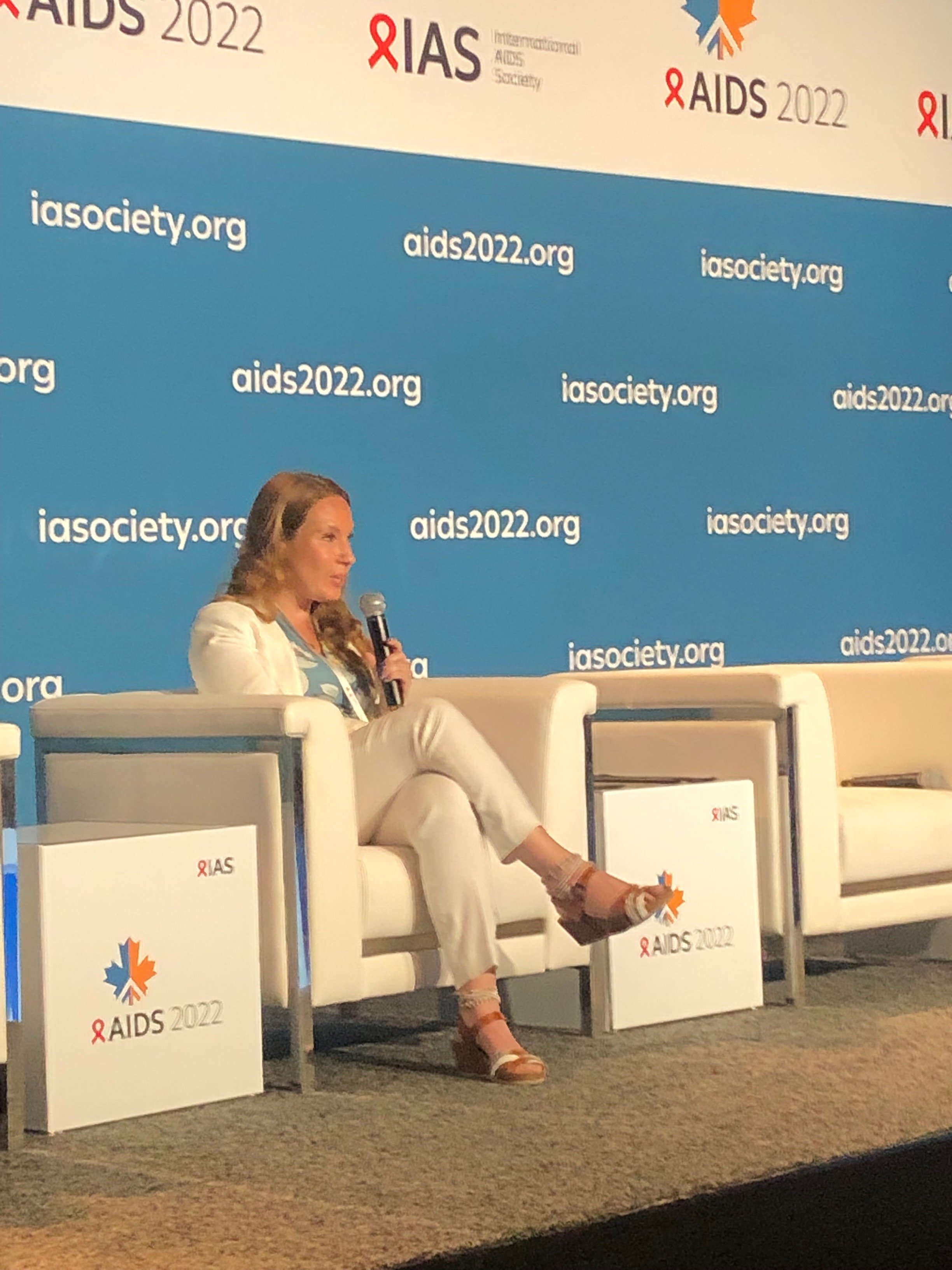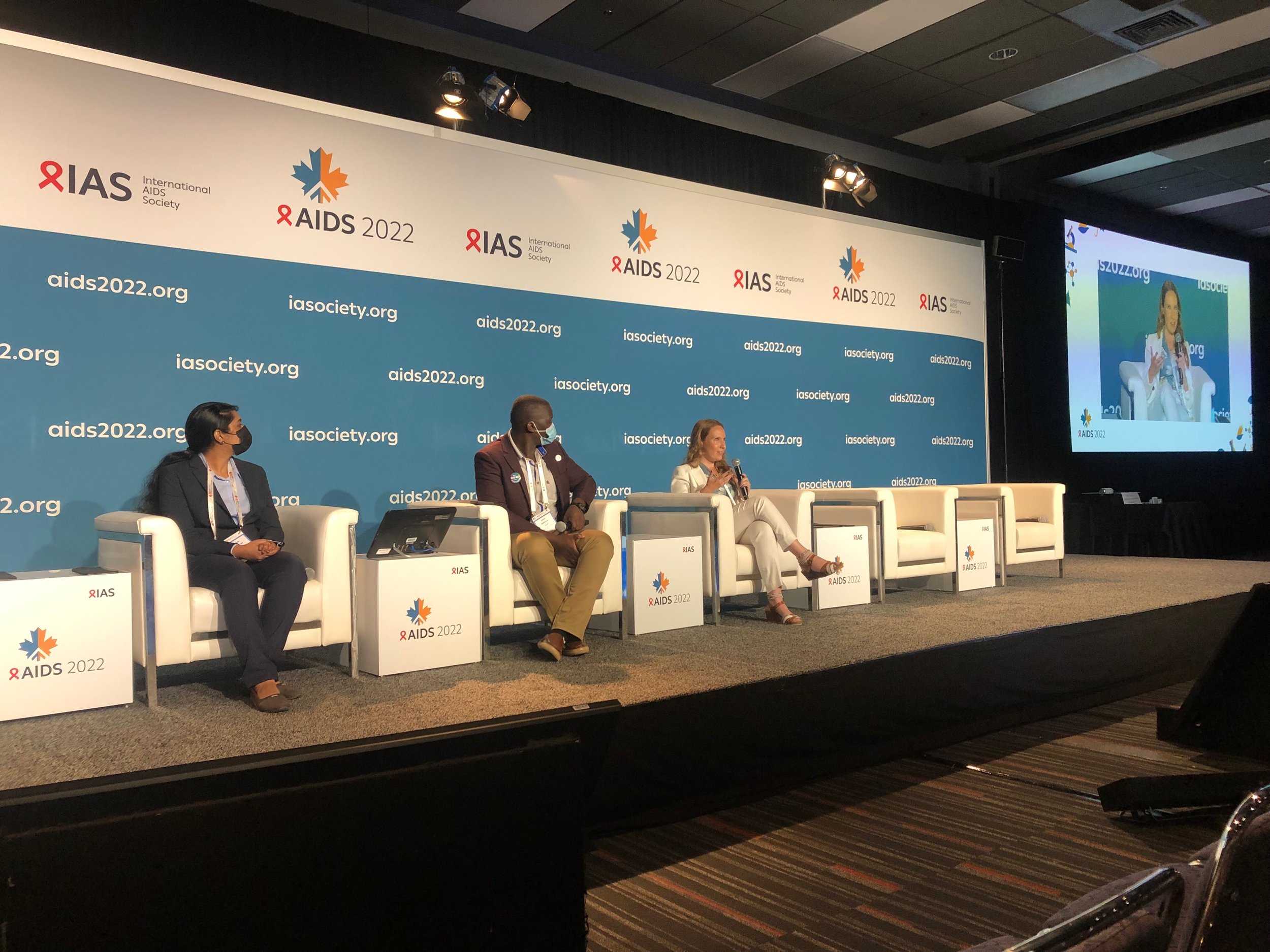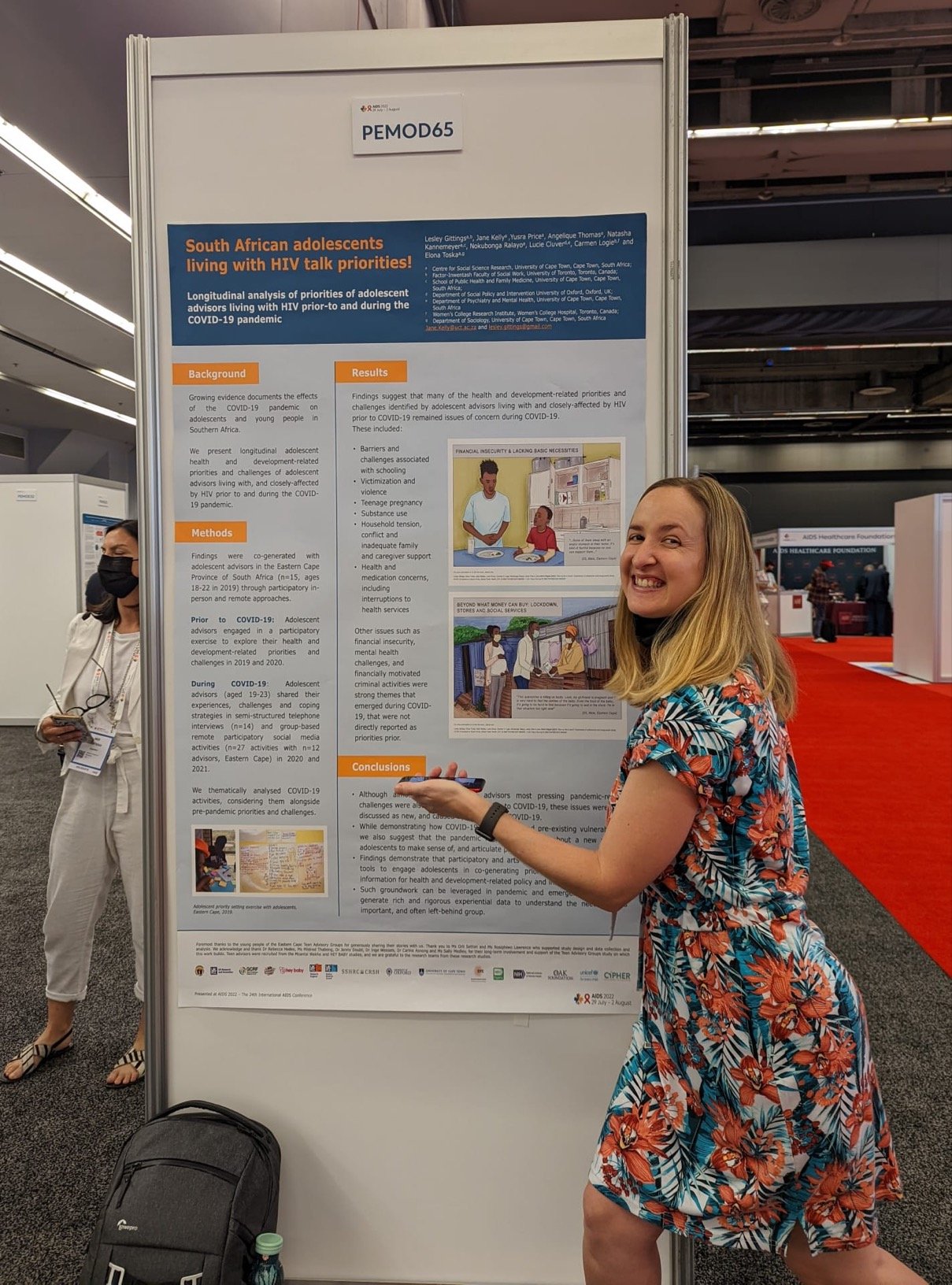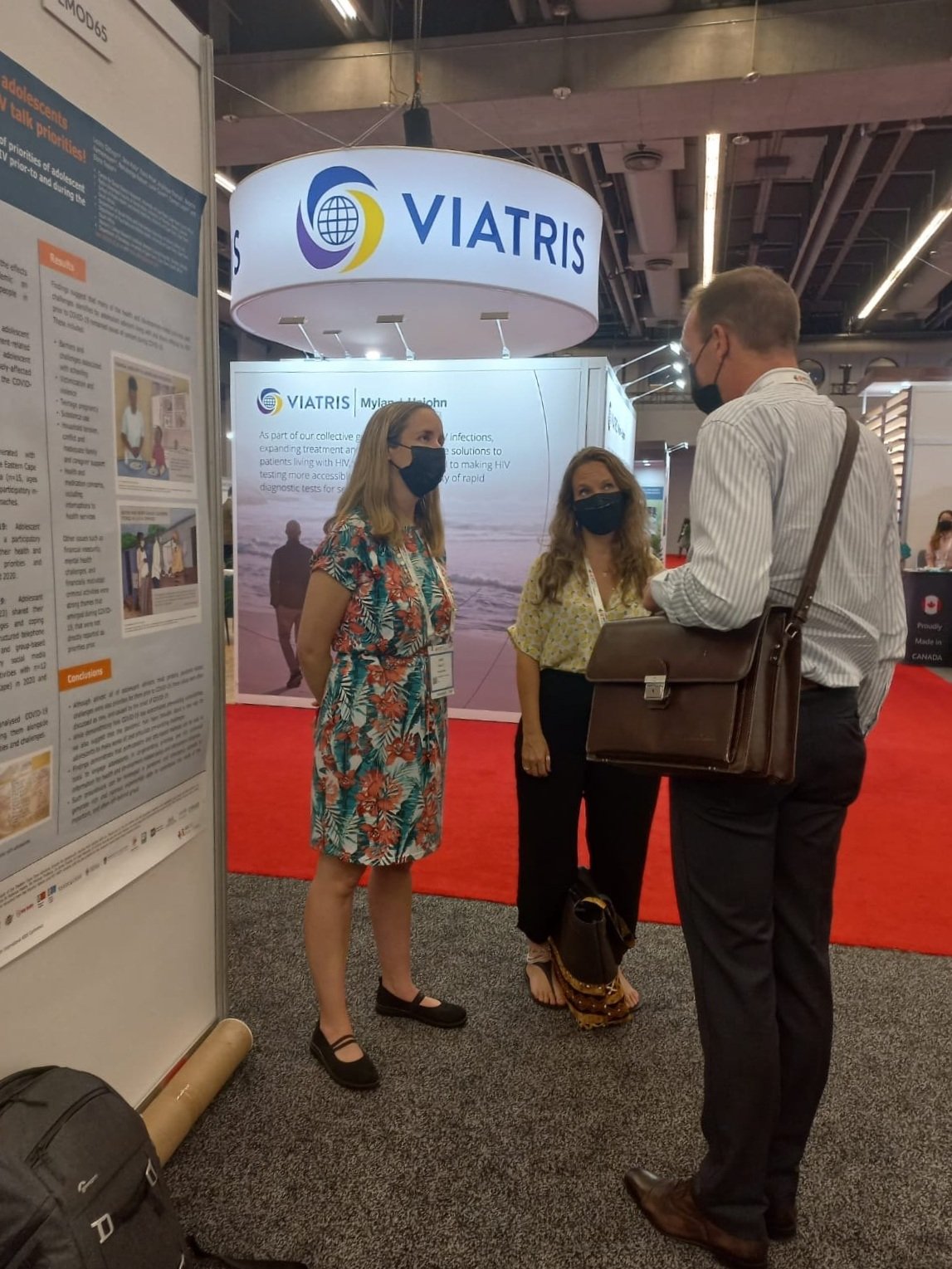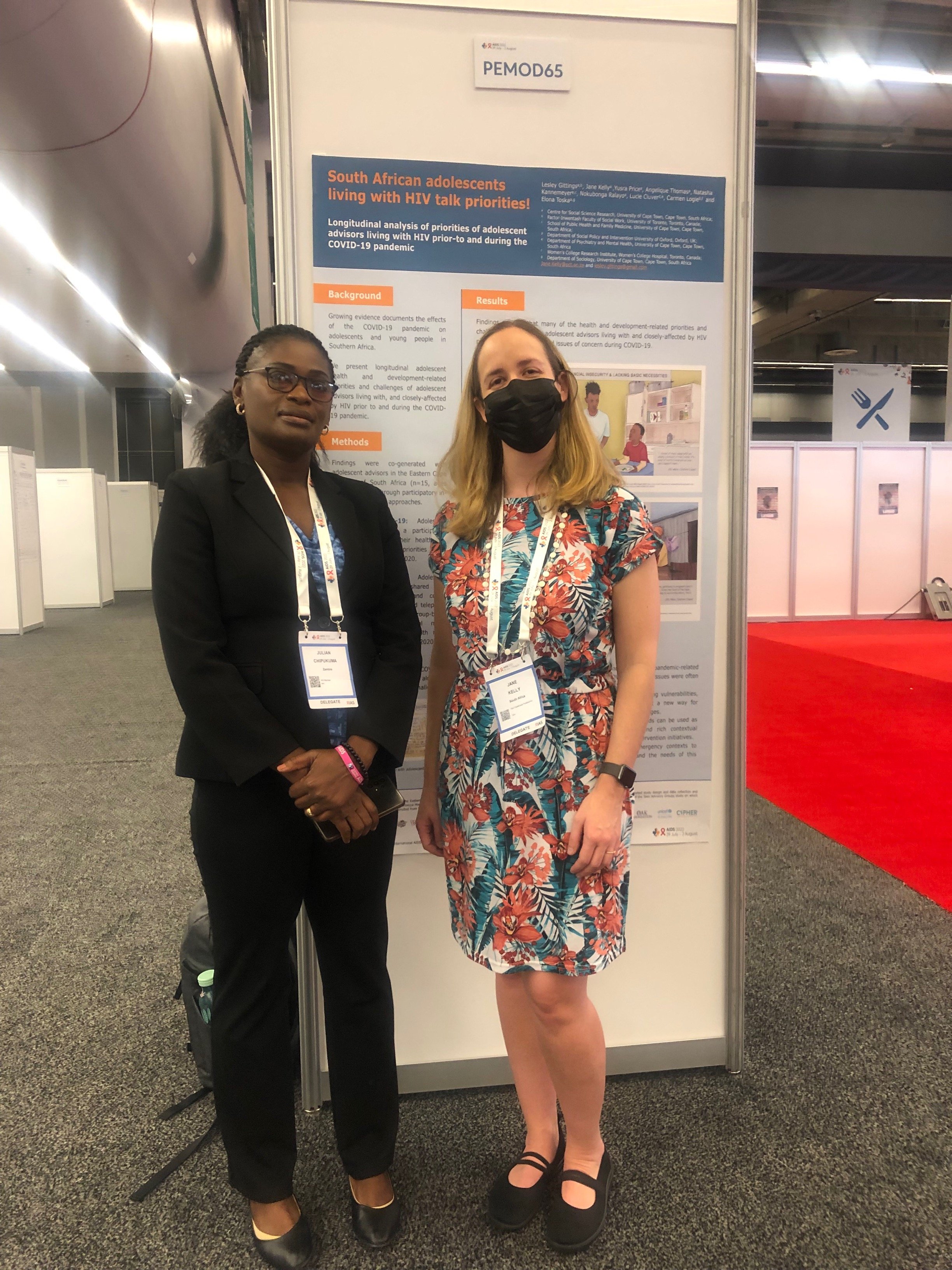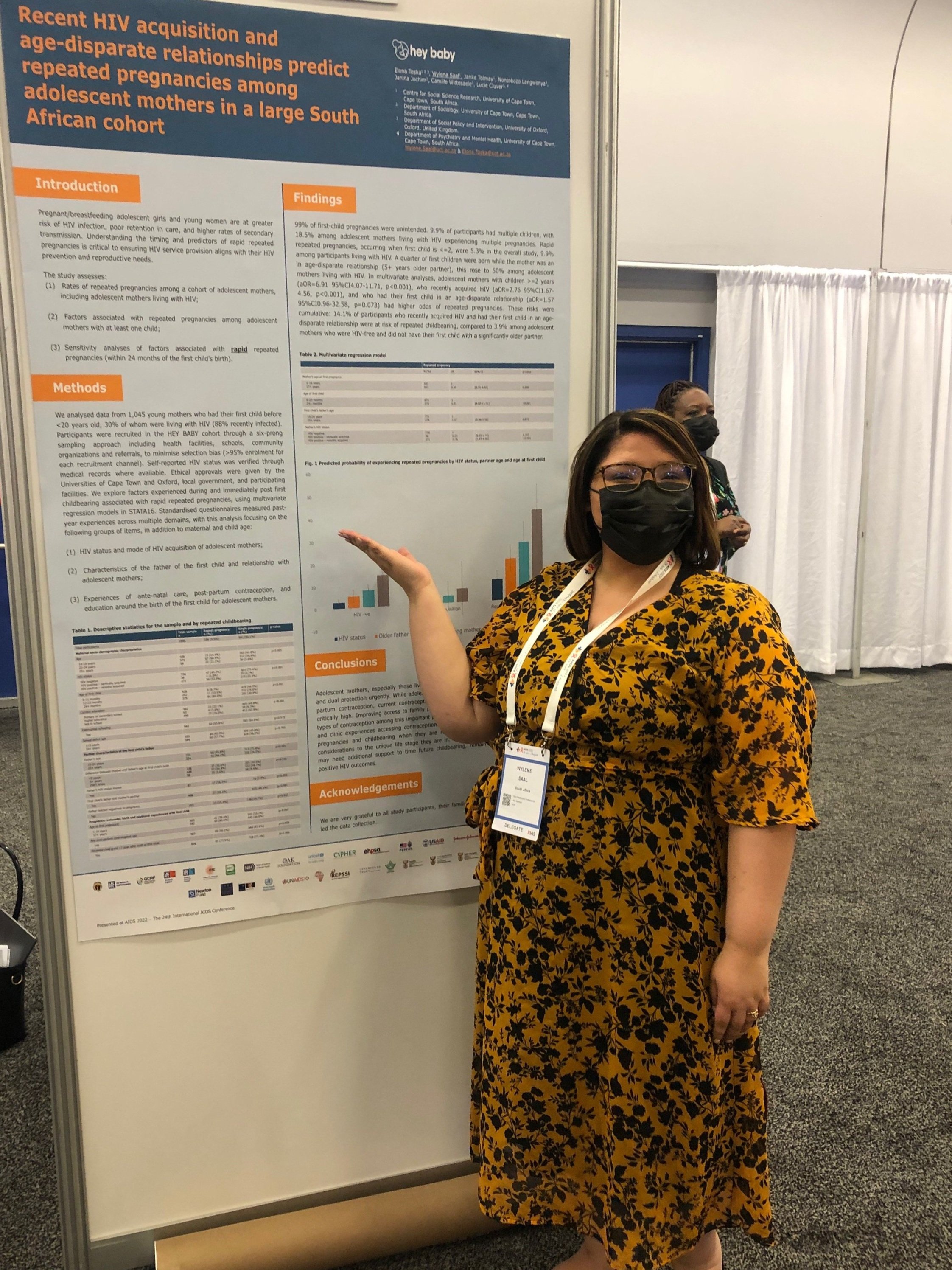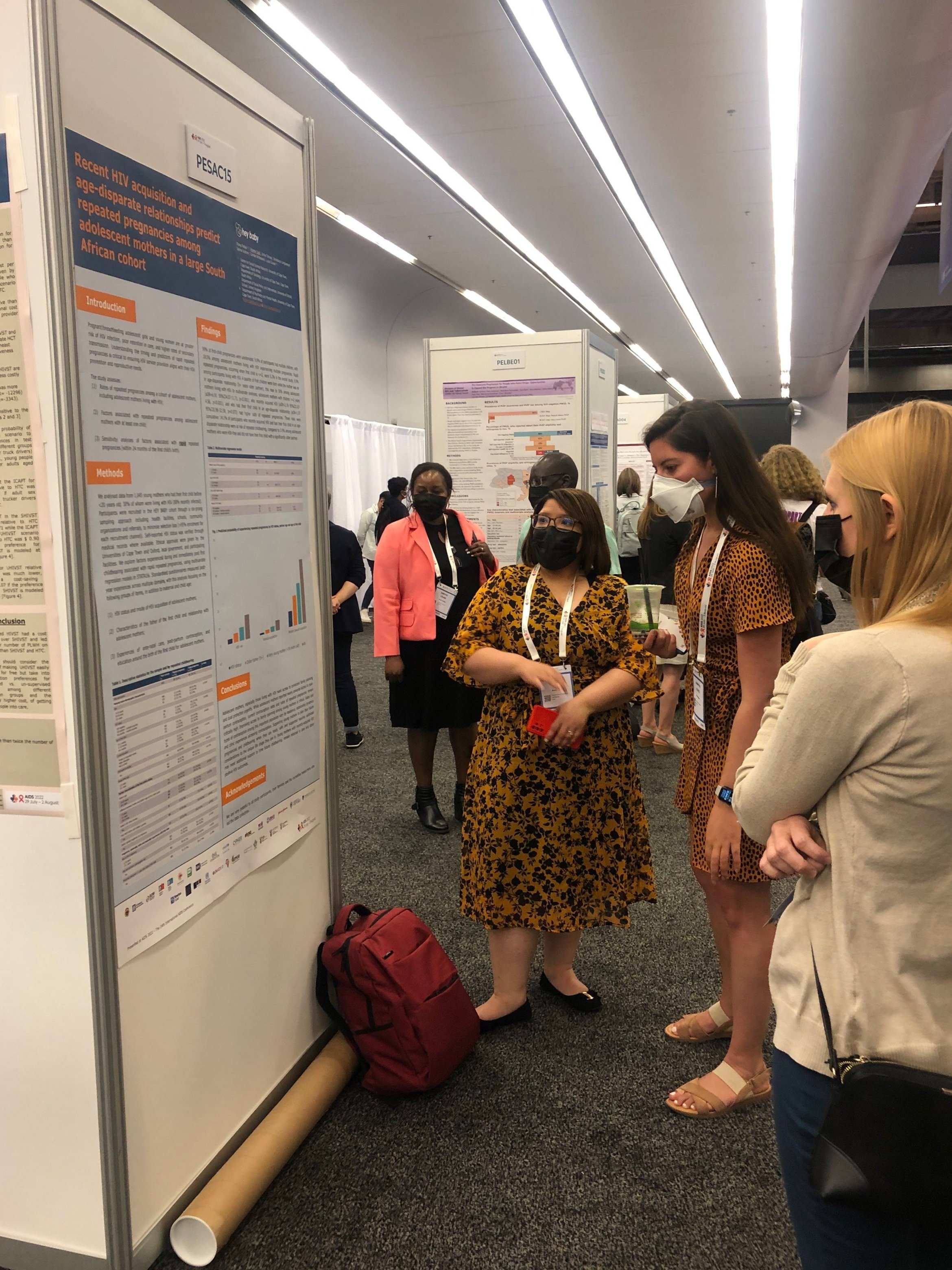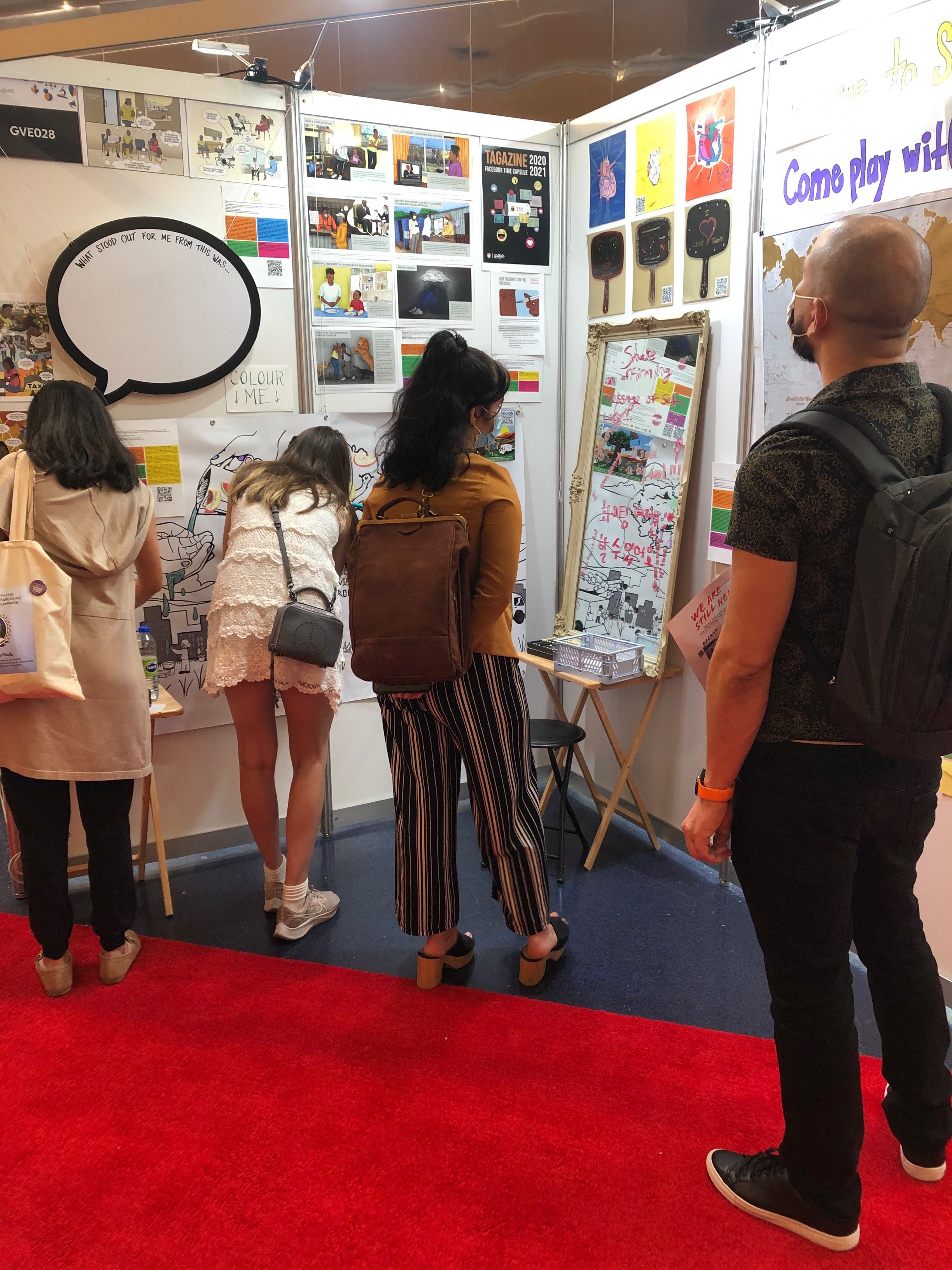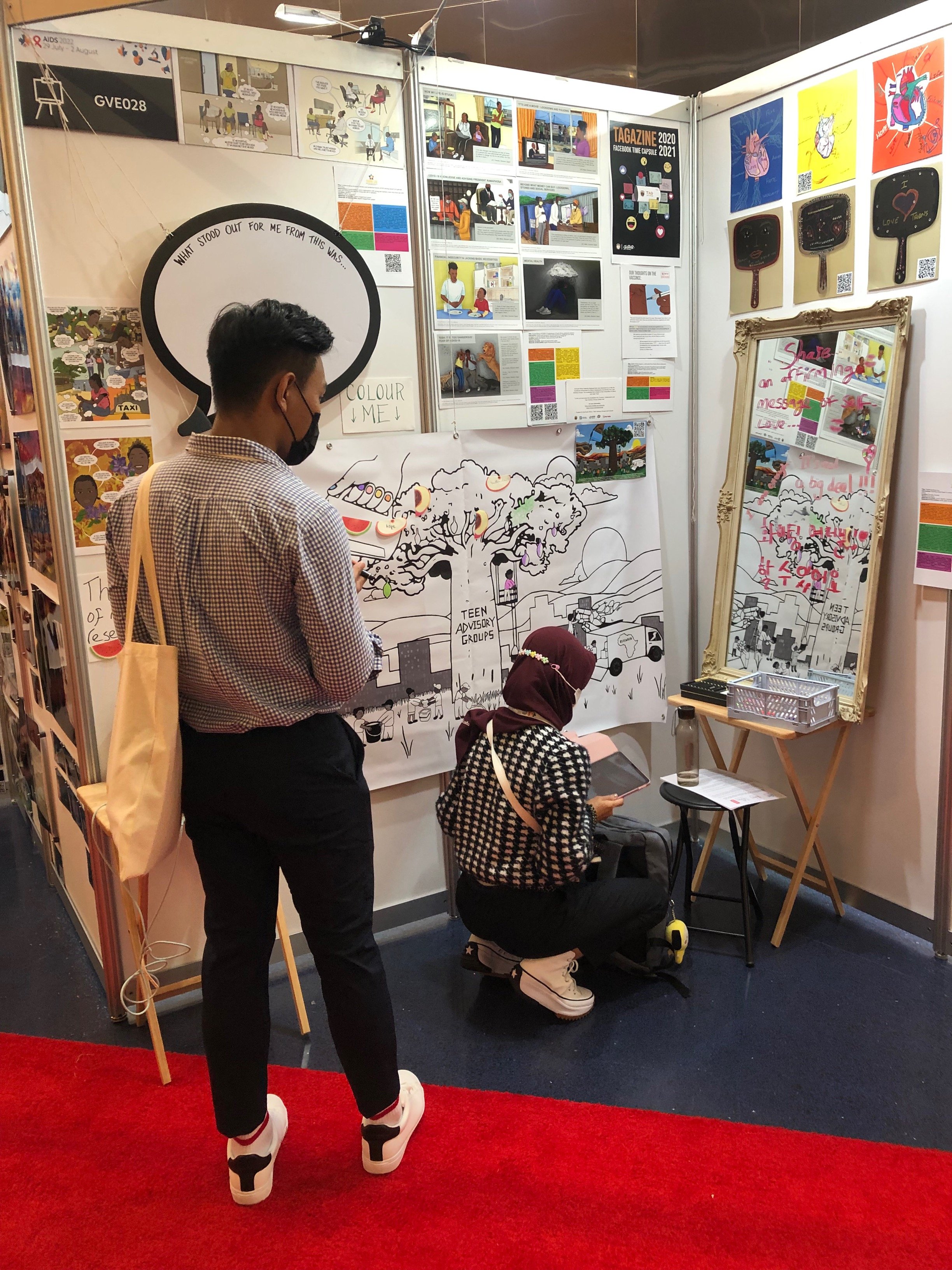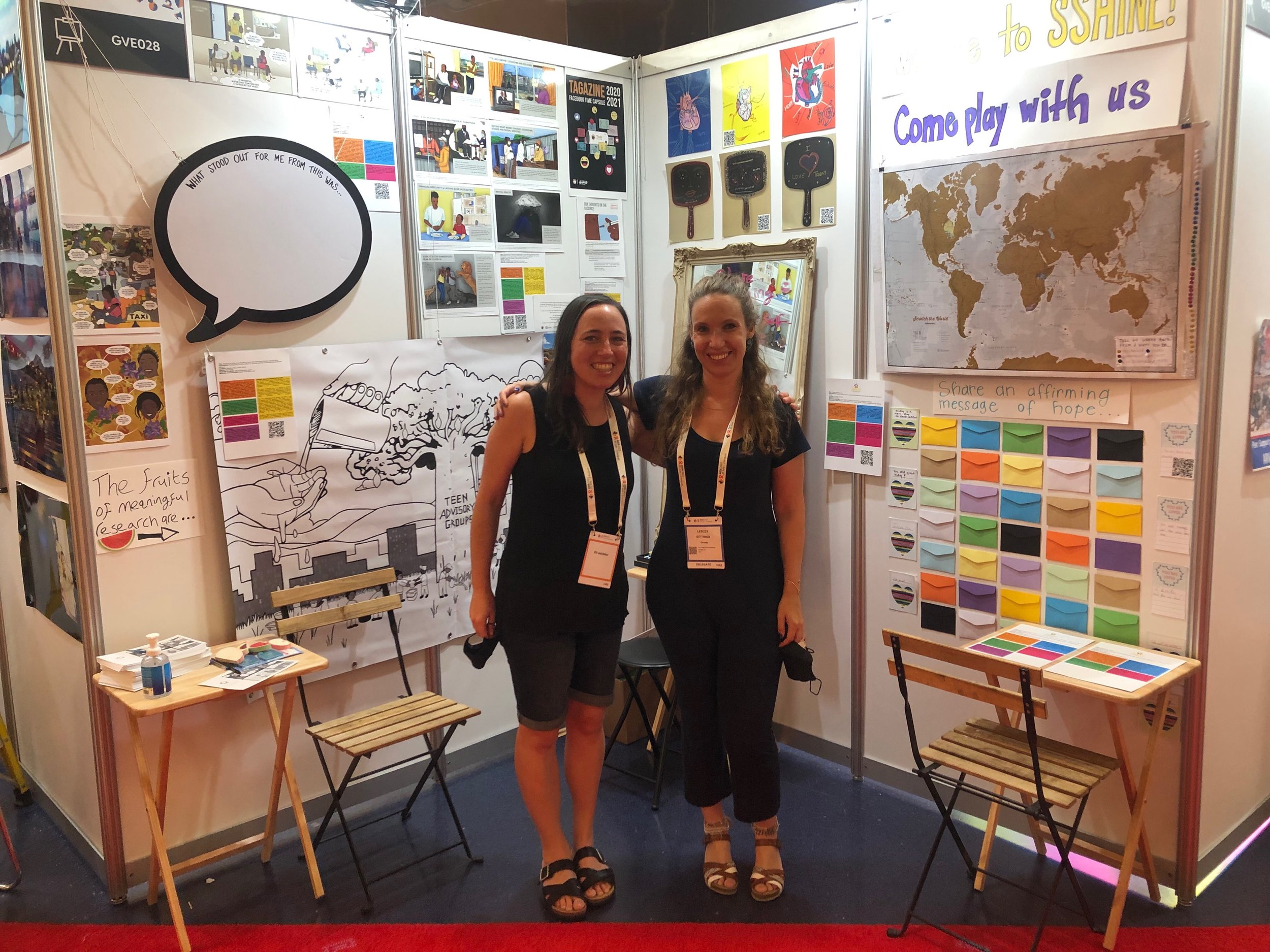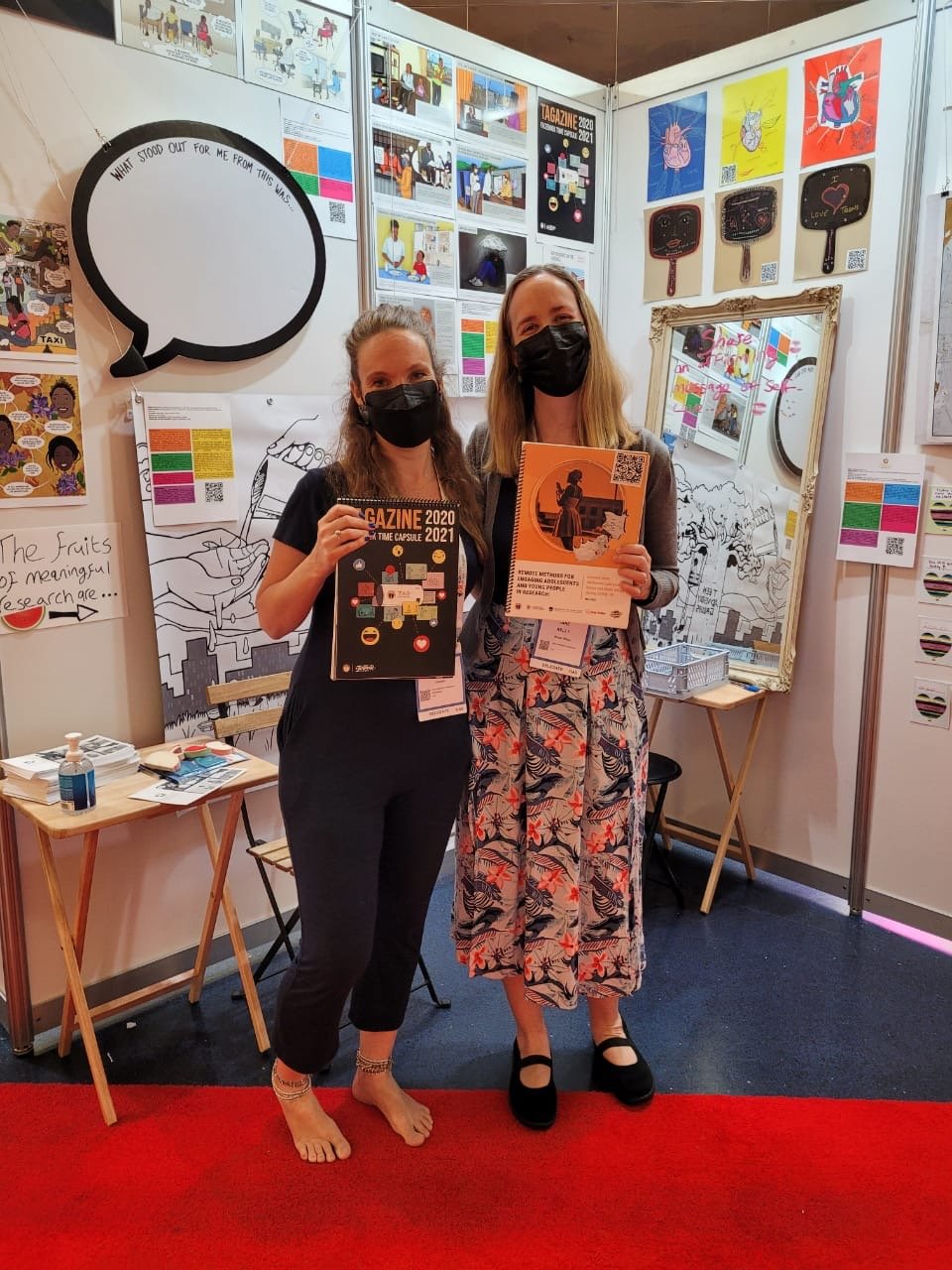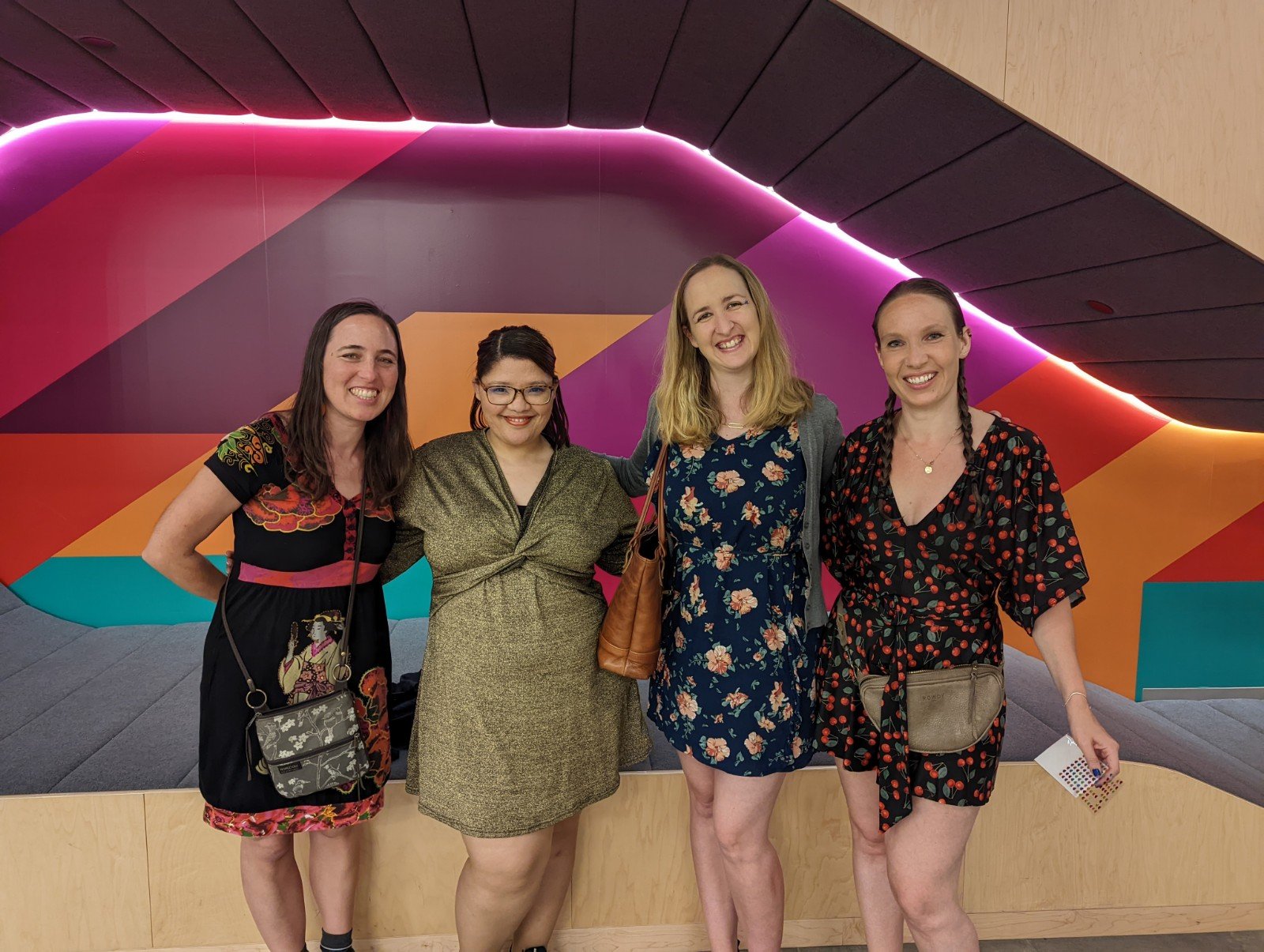The HEY BABY team presents at AIDS 2022, and wins awards!
For the IAS AIDS 2022 conference, the HEY BABY research team presented various oral and poster presentations.
The team presented on various topics using data collected from the HEY BABY cohort. Topics in the poster presentations ranged from the cognitive development of children born to adolescent mothers, mental health, rapid pregnancies, peer delivered support, food security, adolescent priorities, and community-based research. Oral presentation topics included the effects of COVID-19 on HIV-affected youth, impacts of violence on ART adherence, and impacts of the syndemic of HIV and early motherhood, mental health, and suicidal tendencies among young women living with HIV. Professor Cluver also ran a satellite session on integrating mental health care into HIV services.
A few of our researchers received awards for their amazing research.
The Teenage Advisory Group also had a booth at the ‘A multi-media world tour’ exhibition at the Global Villages.
This interactive arts exhibition showcased innovative participatory art-based approaches for empowerment, stigma reduction and meaningful engagement of young key populations.
Scroll down to find out more!
Posters
Roberts et al. The cognitive development of children born to adolescent mothers – does child HIV status matter? (Read it here)
Roberts et al. Does HIV compound maternal mental health challenges among adolescent mothers in South Africa? (Read it here)
Toska et al. Recent HIV acquisition and age-disparate relationships predict rapid repeated pregnancies among adolescent mothers in a large South African cohort (Read it here)
Laurenzi et al. Exploring the feasibility of peer-delivered mental health support for young mothers living with HIV in four sub-Saharan African countries: evidence from peer supporters and their mentors
Cluver et al. Food security reduces multiple HIV infection risks for adolescent mothers and non-mothers in South Africa
Kelly et al. South African adolescents living with HIV talk priorities! Longitudinal analysis of priorities of adolescent advisors living with HIV prior-to and during the COVID-19 pandemic. (Read it here)
Gittings et al. Research as resistance: Struggle songs in community-based research with South African HIV-affected adolescent advisors (Read it here)
Oral Presentation
Gittings et al. "COVID-19 should be learned through illustration": COVID-19 effects on HIV-affected youth in South Africa through participatory visual methods. (See the slides here)
Cluver et al. Impacts of intimate partner violence and sexual violence on antiretroviral adherence among adolescents living with HIV in South Africa
Toska et al. Impacts of the syndemic of HIV and early motherhood on adolescent girls and young women in South Africa
Saal et al. Social support attenuates the syndemic of poor HIV care and stigma on suicidal tendencies among South African young women living with HIV (See the slides here)
Saal and Roberts Mental health of Young People Living with HIV & Impacts for Quality of Life (See the slides here)
Satellite Session
Cluver et al. The Lancet Child & Adolescent Health: From surviving to thriving: Integrating mental health care into HIV services for adolescents living with HIV
NAM aidsmap summarised some sessions by the team
Adolescents and women who experience violence more likely to get HIV and less likely to control it (click here to read)
(Quote from an audience from the post by NAM aidsmap) “It hurts that we see so much data being collected, and there is less than is occurring in terms of justice for intimate partners, regardless of HIV or sexuality. We always experience women who are dying. There is not enough justice. So, we need everybody, need a multi-sectoral approach in terms of fighting gender-based violence. It’s not enough for them to acknowledge only that there is a pandemic which is gender-based violence and femicide, but at the end of the day, there are no structures, there is no plan in place to deal with all that we are facing.”
Cluver agreed and responded: “We bury ourselves sometimes in the statistics, because they are easier than the horrifying reality.”'
See Lucie’s interview with aidsmap here: YouTube Link
Social support can buffer the effects of stigma on suicidality among young people living with HIV (click here to read)
(Quote from the post by NAM aidsmap) ‘Saal emphasised that suicide prevention and response need to be integrated in HIV services, by mitigating the risk factors of poor retention in care and stigma. Young women living with HIV, especially those struggling to stick with HIV care or who have limited support networks, should be screened for suicidality and poor mental health. In addition, peer support groups can strengthen social relationships to improve mental health and reduce suicidality among young women living with HIV.’
HEY BABY Researchers Wins Awards!
Our very own researcher Kathryn Steventon Roberts won the Best Abstract Prize for her poster on “The Cognitive Development for Children Born to Adolescent Mothers Living with HIV in South Africa According to Child HIV Status”!
Dr Christian Laurenzi, an affiliated researcher to HEY BABY, also won the The Journal of the International AIDS Society (JIAS) Impact Award. This award acknowledge high-impact publications from the previous year, as determined by the journal’s Editorial Board members and Deputy Editors. Selections are made based on a combination of public health importance, downloads and citations. Three awards will be announced at AIDS 2022.
Professor Lucie Cluver and Siyanai Zhou was also awarded the ‘Health Innovation: Prize for Excellence in Research Related to the Needs of Children and Adolescents. The aim of the prize is to draw the attention of the scientific community to children living with and affected by HIV and AIDS. One prize is awarded to an abstract which demonstrates excellence in research that is likely to lead to improved services for children affected by HIV and AIDS.
TAG at AIDS 2022 Global Village!
TAG work was featured at Global Village art exhibit entitled: SSHINE! A world tour of Sexual Health Interventions to Nurture Empowerment using participatory arts-based approaches with key populations.
This interactive arts exhibition showcased innovative participatory art-based approaches for empowerment, stigma reduction and meaningful engagement of young key populations. This exhibition was presented by Professor Carmen Logie’s SSHINE (Stigma and Sexual Health Interventions to Nurture Empowerment) lab at the University of Toronto. It was co-conceptualised by Dr. Lesley Gittings, research associate at the Accelerate Hub, UCT.
TAG materials presented included (1) a large participatory colour-in mural, developed by the Western Cape TAG; (2) digital time capsule of TAG COVID-19 activities co-developed by the Eastern and Western Cape TAGs; and (3) a visual library of South African TAG members’ COVID-19 experiences; (4) remote methods toolkit , co-developed with South African and Kenyan adolescent advisors during COVID-19.
See below for more photos from the conference!

